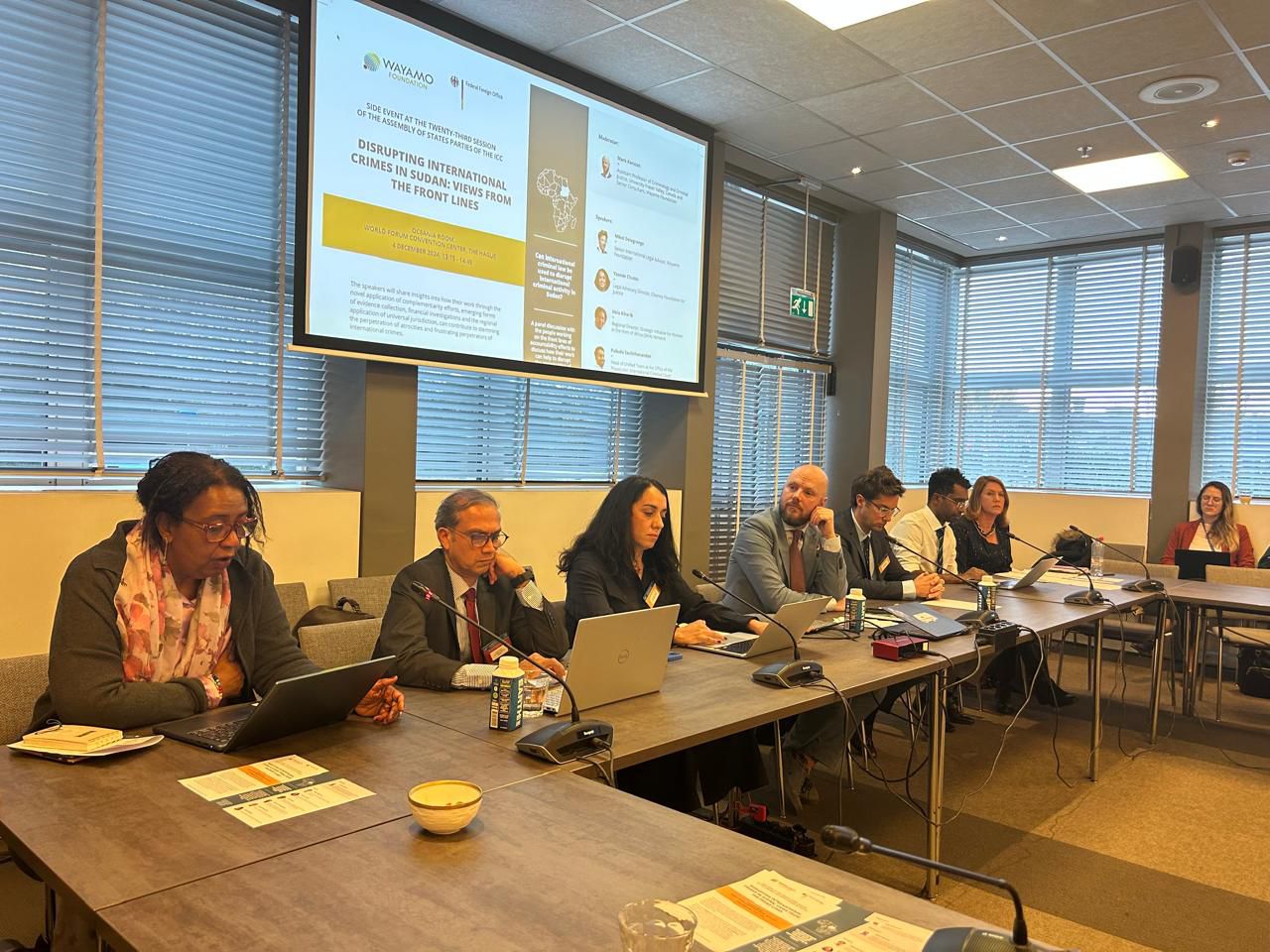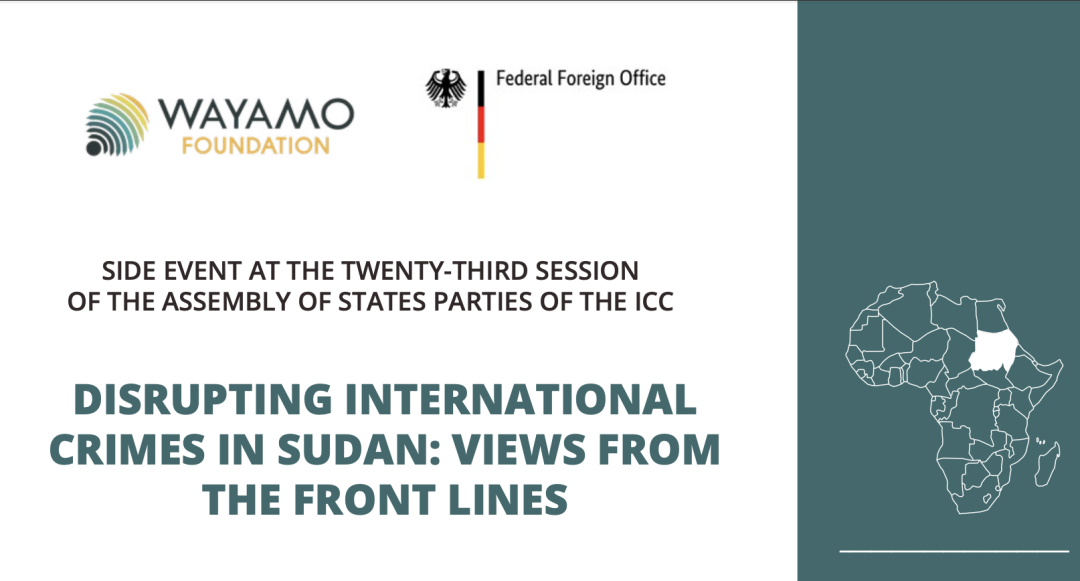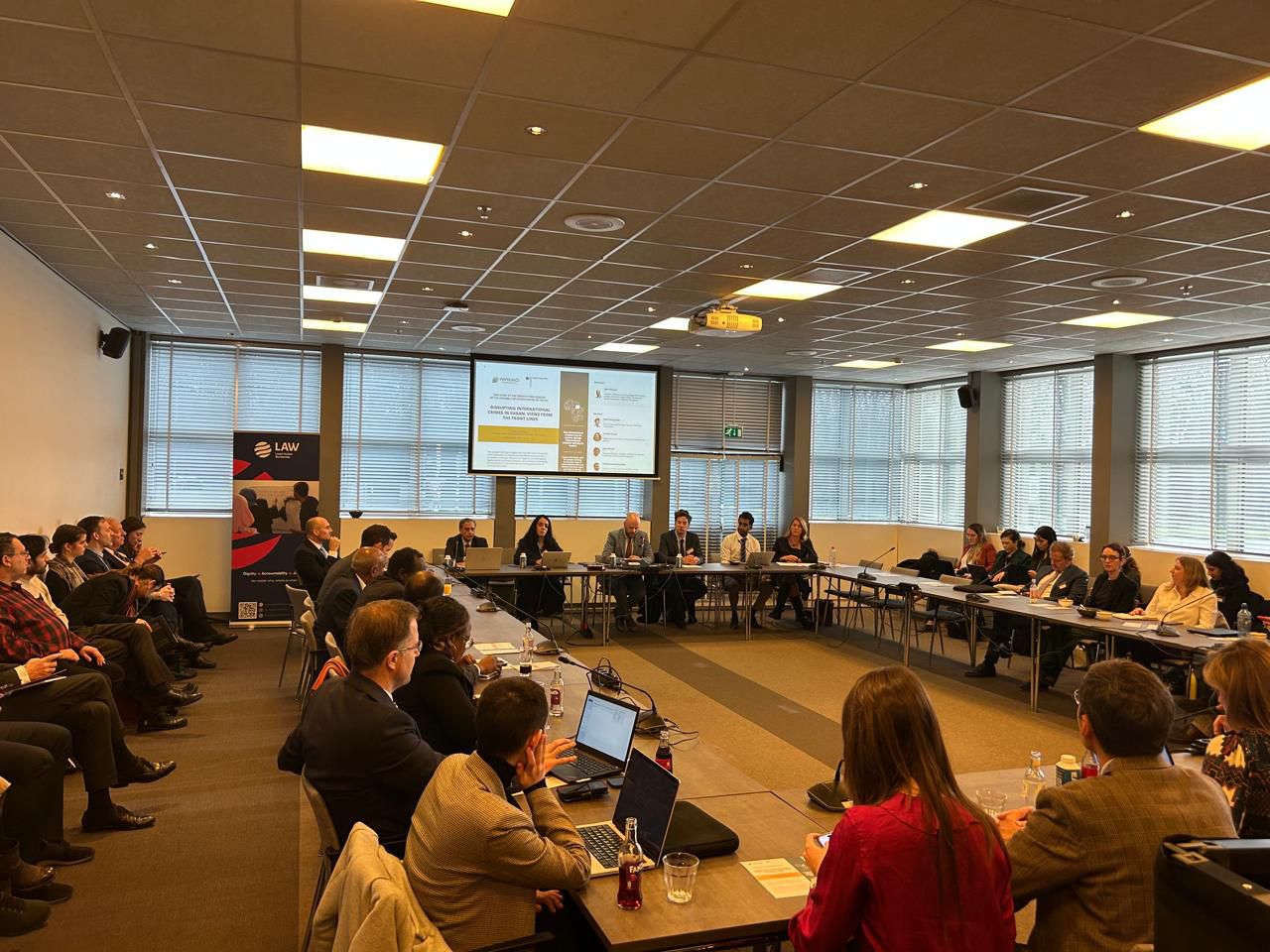On 4 December 2023, the Wayamo Foundation hosted a side event entitled, “Disrupting international crimes in Sudan – Views from the front lines”, at the Assembly of States Parties (ASP) of the International Criminal Court in The Hague, co-hosted by Germany.
The panel discussion focused on ways to address mass atrocities committed in Sudan and how to identify and disrupt criminal networks responsible for international crimes, using a wide range of creative methods.

The event was moderated by Mark Kersten, Assistant Professor of Criminology and Criminal Justice, University Fraser Valley, Canada and Senior Consultant, Wayamo Foundation and featured:
- Rashid Ahmine Esq., Director of Public Prosecutions, Mauritius
- Hala Alkarib, Regional Director, Strategic Initiative for Women in the Horn of Africa (SIHA) Network
- Yasmin Chubin, Legal Advocacy Director, Clooney Foundation for Justice
- Mikel Delagrange, Senior International Legal Advisor, Wayamo Foundation
- Antonia Mulvey, Executive Director, Legal Action Worldwide (LAW)
- Pubudu Sachithanandan, Head of Unified Team at the Office of the Prosecutor, International Criminal Court
The speakers stressed the fact that they saw their role as contributing to the collective goal of addressing atrocities in Sudan. Indeed, the panel discussion made it clear that, rather than representing individual organisations, the diverse actors presented a united front of international and regional civil society actors, national prosecuting authorities and the International Criminal Court, all committed to pursuing justice and accountability in Sudan. Turning to those cases where accountability was not immediately possible, the panellists went on to explain how the very ability of perpetrators to commit international crimes could be disrupted.
In line with the theme of “disrupting international crimes”, there was therefore a spirited discussion on how to:
- Inhibit the main belligerents from travelling around the continent as statesmen
- Interfere with financial and weapon flows from neighbouring countries to Sudan
- Use universal jurisdiction to pursue accountability for the crimes committed in Sudan.
One Sudanese civil society actor said, “The current belligerents have been invited by South Africa and Rwanda on official visits, including to the Rwandan Genocide Museum, which is an insult to the people of Sudan …. they have turned our entire country into a genocide museum!”
One of the key takeaways from the event was the description of efforts currently under way to document international crimes for the purposes of future accountability efforts, including universal jurisdiction (UJ) cases. Work is also being done to sensitise new UJ venues (apart from the established venues in Europe) to the need to engage in the greater fight against impunity, and impair the ability of those accused of international crimes to travel freely. In line with Wayamo’s programming and raison d’être, the event endeavoured to further the ongoing conversation over creativity, complementarity and the role of the ICC in working proactively with national authorities to investigate and prosecute international crimes. Finally, together with international civil society partners and regional prosecuting authorities, efforts are currently being undertaken to investigate, track and trace financial flows tied to the commission of crimes in Sudan.
As demonstrated at the ASP, the Wayamo Foundation is seeking to form a coalition to engage in the fight against impunity in Sudan, a mission eloquently endorsed by Mauritian Director of Public Prosecutions, Rashid Ahmine, when he said, “May justice –be it domestic or international– always prevail!”



